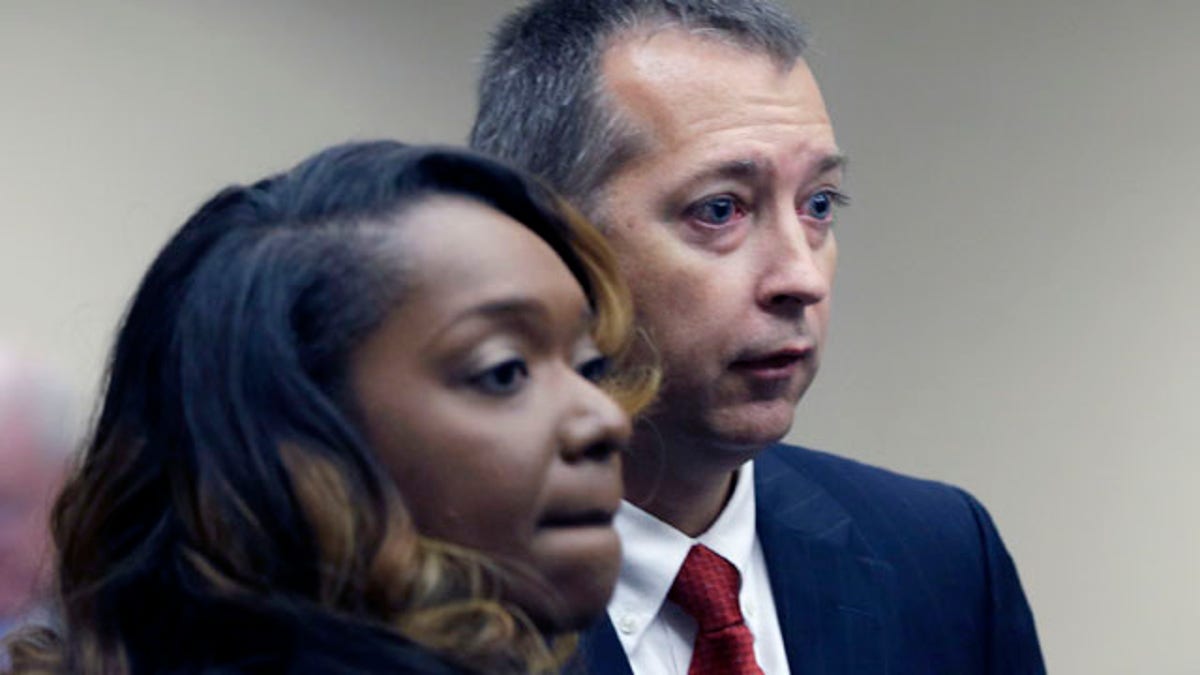
Aug. 14, 2013: Senior Assistant Arkansas Attorney General Warren Readnour, right, and Assistant AG Ka Tina Hodge appear before a meeting of the Arkansas Board of Private Investigators and Private Security Agencies in Little Rock, Ark. (AP)
A state board voted Wednesday to allow 13 school districts in Arkansas to continue using teachers, administrators and other staff as armed guards, despite a warning from the state's top attorney that the licensing law they relied upon was intended for private businesses.
After initially voting to revoke two districts' licenses classifying them as private security firms, the Arkansas Board of Private Investigators and Private Security Agencies decided to allow the schools to keep them for two more years. The panel had voted to suspend the schools' licenses last month after Attorney General Dustin McDaniel said they shouldn't have been issued to the schools.
Board members said the two-year reprieve would give the Legislature a chance to look at ways schools could employ their own staff as armed guards. The panel said it won't accept any new applications from school districts.
In an advisory opinion last month, McDaniel said the licensing law the schools had relied on was intended for private security companies. State law prohibits guns on campus, but an exception is included for licensed security guards.
"We all agree school safety is important," Ka Tina Hodge, an assistant attorney general, told the panel. "The issue here is whether or not the school is a private business."
Board Chairman Ralph Sims told reporters that the issue was now up to legislators.
"As it stands now, school districts do not qualify under the definition of a private company or private business, so the Legislature is going to have to make some change or accommodations for a public entity to register their employees as security officers," Sims said.
Clarksville, a 2,500-student district in western Arkansas, had trained 22 teachers and staff this year to work as volunteer armed security guards. Licenses for 14 of those trained had already been approved by the state. McDaniel's opinion was requested a day after The Associated Press profiled the district's security plan.
Participants in Clarksville's program were given a one-time $1,100 stipend to purchase a handgun and holster. The 53-hour training program for participants included roleplaying drills of school shootings, with teachers and staff using "airsoft" pellet guns and students wearing protective facemasks and jackets.
Clarksville Superintendent David Hopkins pleaded with the panel to allow his school to keep the licenses, saying it was a cheaper option than hiring private security guards or paying for police to act as school resource officers. Hopkins said the district has spent about $70,000 for training and stipends for program participants to buy handguns.
"Our whole point and goal here was to provide meaningful security for our kids, but do it in an economical way," Hopkins said.
The Lake Hamilton School District has for years used the licensing law to train a handful of administrators as security guards, but the guns are locked away and not carried during the school day.
"Our children are our greatest resource in this state and they deserve to be protected ... Right now we have a mechanism in place that has worked and has worked under your guidelines for 20 years without any problem," Lake Hamilton Superintendent Steve Anderson told the board.
Jack Acre, a member of the board who voted against allowing the licenses to continue, said he thinks outside security firms or law enforcement are better equipped to handle school security.
"If you're a teacher, you can't teach school and be a security guard. If you're driving a bus, you can't do it," Acre said.

